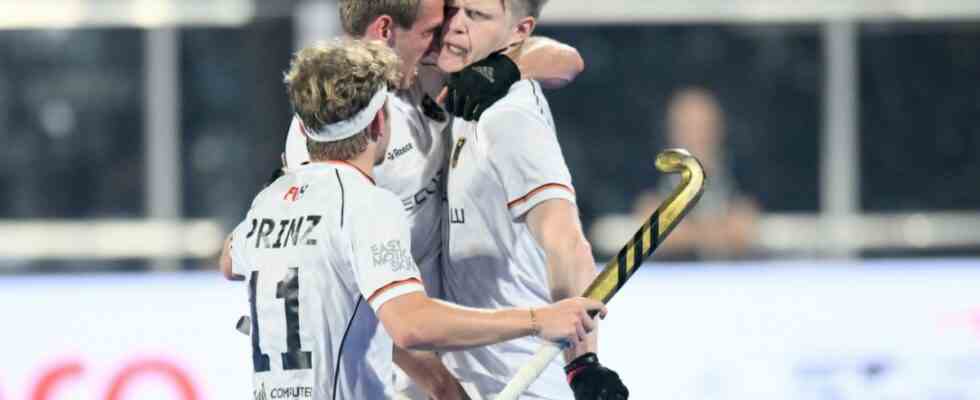Some victories are important and yet quickly forgotten, others seem self-evident afterwards and are quickly forgotten. This Wednesday of the Hockey World Championships in Bhubaneswar, India, will be remembered for a long time by every player or supporter.
The 4-3 shoot-out quarter-final win over England was more than just progressing through a major tournament. It was a victory that can transform a team. In any case, the younger players, who had never before achieved the seemingly impossible, undoubtedly received a boost in their self-confidence. Because the German team of coach André Henning was already so beaten that even in hockey with its surprising turns, basically no one could believe in progressing. However, coach Henning later praised his team’s “terrific mentality”: “Shortly before the end we were 2-0 down, nobody believed in us anymore,” he said, adding: “But we did.”
The fact that every rationally thinking viewer was at some point through with the belief that everything would be fine after all was due to many factors. The team, dubbed the Honamas, needed a quick goal against England but instead ended up being outnumbered for five minutes; goalscorer Christopher Ruhr also saw the yellow card. Nevertheless, the Germans kept running, conceded the second goal and also awarded two penalty corners. It ended 2-0 in the fourth quarter of regular time against England, whose defense is particularly strong, as evidenced by the fact that they have yet to concede a goal in the tournament.
But Henning’s team continued to struggle against the defeat, ran and earned another penalty corner, probably a last chance, which should have triggered the final crack in the self-confidence of the Germans, because Christopher Ruhr banged the ball on the crossbar.
A 20-year-old characterizes the penalty shootout
Sometimes, however, bad luck creates an instinctive backlash. In any case, the team still didn’t give up, they rushed forward, captain Mats Grambusch scored in the 58th of 60 minutes of regular playing time, and another minute later his brother Tom Grambusch took the chance to equalize with a seven-metre throw.
It was 2:2, the previous game had been shaped by the more experienced German players in its lows and highs, but the penalty shoot-out was now a 20-year-old: Jean Danneberg, a young goalkeeper from Darmstadt with outstanding reflexes and clean positional play. He probably made another mark that day with his two saved penalties, which resulted in the final score of 4:3 and entry into the semifinals.
So the rebellion in the 58th minute had its effect, and if the players have their way, then this reaction against their own sloppiness and also against bad luck will remain in their heads. After the last Olympic victory in 2012 and the most recent World Cup gold in 2006, the aim is to celebrate a similar triumph again in order to bring hockey into the headlines more often. To do that, Henning’s team would have to advance to the final, and for that they have to focus on the next game, on a win on Friday (12 noon) against three-time world champions Australia. And if things should get off to a slow start again? At least the selection won’t lose their faith anytime soon.

